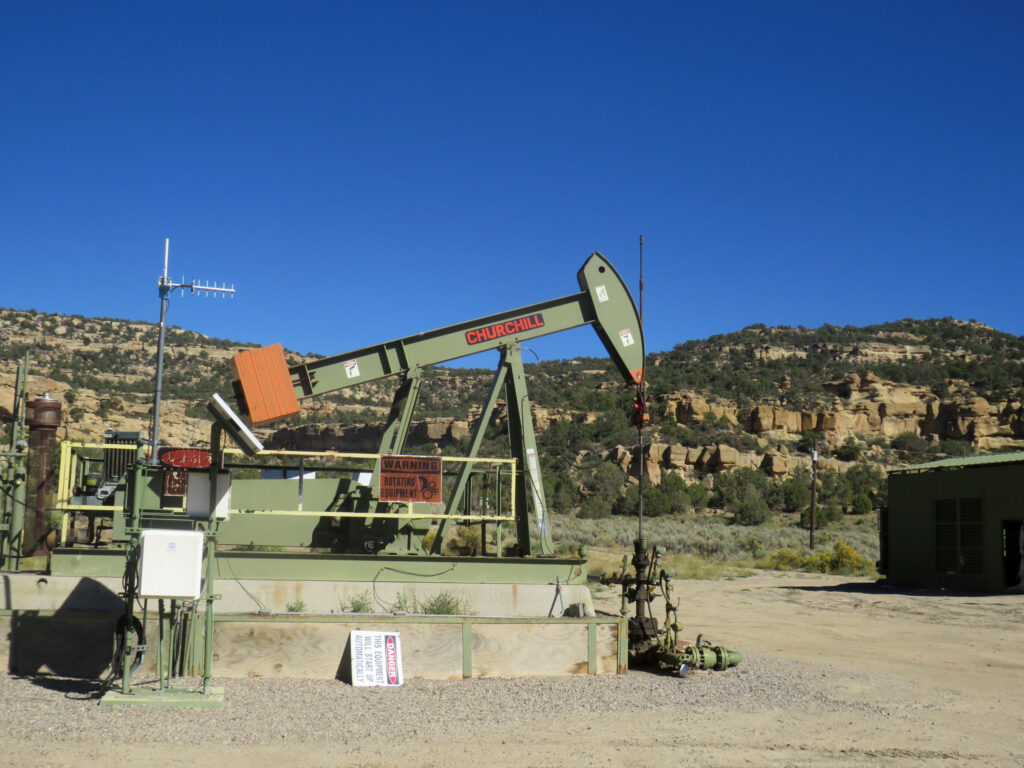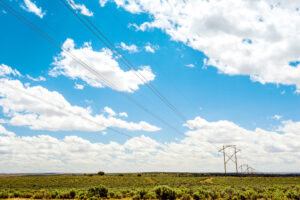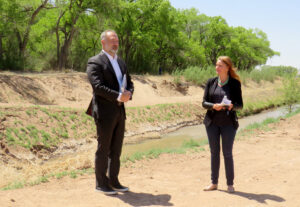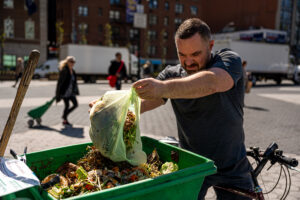IPCC report leads to calls for passage of Build Back Better Act

In light of the latest report from the Intergovernmental Panel on Climate Change, which was released Monday, advocacy groups say Congress needs to pass the Build Back Better Act to address emissions.
Representatives from several organizations including National Wildlife Federation, Third Way, BlueGreen Alliance, Clean Air Task Force, Data for Progress and Princeton ZERO Lab hosted a virtual press conference following the release of the IPCC Working Group II report.
Jesse Jenkins, the principal investigator for Princeton ZERO Lab, said enacting the Build Back Better Act and cutting emissions will prevent 24,000 premature deaths related to air pollution between now and 2030.
Marcela Mulholland, the political director for Data for Progress, said the Build Back Better Act has broad public support across the political spectrum, based on polling her organization completed.
Some of the aspects of the Build Back Better Act have more support than others, such as improving energy efficiency in homes and businesses.
Other aspects are controversial in the environmental community, including using fossil fuels to produce hydrogen energy and utilizing carbon capture and sequestration, including direct air capture, to address both current and past emissions.
The report found that decreasing emissions will help reduce the impacts of climate change; however, it cannot prevent all of the problems associated with the increased global temperature.
“We’re going to need to help people adapt and some of that is through improving the ability of nature to continue to sequester more and more carbon as well as to help adapt to our changing environment,” Shannon Heyck-Williams, senior director of climate and energy policy for National Wildlife Federation, said. “And that’s for wildlife as well, of course, we need to continue to help support biodiversity.”
Heyck-Williams said a technological solution that could help is direct air capture, which removes carbon dioxide from the atmosphere. This technology is still largely in its infancy, with groups like Occidental Petroleum (Oxy) leading the effort. Oxy is hoping to start up the world’s largest direct air capture facility by early 2024 in the Permian Basin, which would be capable of capturing up to one million metric tons of carbon annually. However, critics say that so far, carbon capture projects have been expensive and yielded few results.
The IPCC working group II report emphasized the importance of immediate action.
“This report is a dire warning about the consequences of inaction,” said Hoesung Lee, chair of the IPCC, in a press release. “It shows that climate change is a grave and mounting threat to our wellbeing and a healthy planet. Our actions today will shape how people adapt and nature responds to increasing climate risks.”
While the northern half of the North American continent is expected to see increased precipitation due to climate change, the southwest will see a decrease, the report states. And this is already having an impact on agriculture as well as ecosystem health. Reduced snowpack and earlier spring runoff means less water during the summer, which has led to fish die off in the Rio Grande and a reduced irrigation season.
And some communities are experiencing greater impacts than others. For Indigenous communities, the report highlights that a resilient environment is closely connected to culture, identity, commerce, health and wellbeing. At the same time, these communities have felt amplified impacts due to colonialism and discrimination, it states. The report further states that self-determination for Indigenous people is “critical for effective adaptation.”
During a press conference, United Nations Secretary General António Guterres said he has seen many scientific reports but “nothing like this.” He described the IPCC report as “an atlas of human suffering and a damning indictment of failed climate leadership.”
“Nearly half of humanity is living in the danger zone now and many ecosystems are at the point of no return now,” he said. “Unchecked carbon pollution is forcing the world’s most vulnerable on a frog march to destruction now.”
Guterres said preventing warming of more than 1.5 degrees Celsius will require the world to cut emissions by 45 percent by 2030 and achieve net zero emissions by 2050, but the current projections show emissions increasing in the future.
This article was originally posted on IPCC report leads to calls for passage of Build Back Better Act







